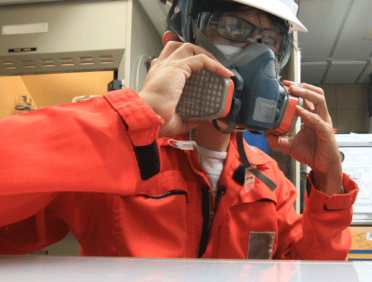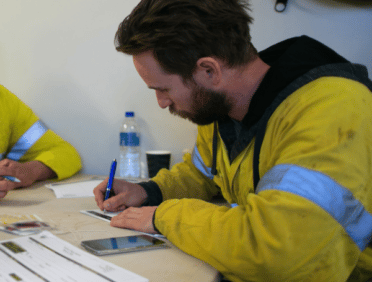Concussion Awareness is aimed at building awareness of injuries to the head resulting from sports, falling in the home, work accidents and symptoms of concussion.
What causes concussion?
A concussion is a form of brain injury. It is caused when the brain is shaken back and forth, banging against the hard bone of the skull.
This motion can cause the brain tissue to become stretched and damaged. This can then lead to a chain of changes within the brain and this can cause you to have difficulties doing your everyday activities.
It can be caused by a variety of things, it could be a car accident, a sporting injury or perhaps a fall. For many people, the concussion (and the brain injury that they receive) are seen to be relatively mild in their nature.
Are concussions serious?
Many medical professionals will say that a concussion is a mild form of brain injury, which means that they are not seen as being particularly serious or life-threatening.
However, despite this, they can lead to some quite serious ill-effects and symptoms, all of which can have an impact on your life and how you function.
This means that if you have any form of suspected concussion, you get medical help as soon as you notice symptoms. Just to make sure that you are properly diagnosed.
Can concussions affect you later in life?
A single one-off concussion, even one that is serious in its nature and lasts for an extended period of time, should be entirely recoverable. This means that you should not find that you are impacted by your concussion later on in your life.
However, those who have repeated concussions (something that is often seen in certain sports) could then leave the person with a higher risk of developing a degenerative disease that progresses and gets worse, exhibiting symptoms much like Alzheimer’s.
Symptoms of concussion
When it comes to helping someone who has a concussion, or getting treatment yourself, it is important to get the concussion diagnosed. This means that you should be on the lookout for some of the key symptoms that would show you that someone may have a concussion.
To help you we have put together some examples of this.
One common symptom of concussion is problems balancing. This is largely caused by dizziness and will often feel just like having vertigo (where it seems that the world is moving around you).
For the most part, bleeding will be linked to a person being injured and this leads to concussion. Bleeding from the ears is usually due to a bleed around the brain and is something that should be checked on.
Visual problems are a common issue linked to concussions. People will usually have blurred or double vision for around 1-2 weeks after the initial injury to the brain and for the most part, the symptom should go away on its own.
Many people, first realise that they may have a concussion because they feel confused. They may be entirely unaware of their surroundings, they may seem too dealy in answering questions and they may also have a blank expression, even when they are being interacted with.
Someone who is concussed may find it hard to know what to say as if they cannot think of the right words, or they may say words that are out of context.
Being sleepy or feeling that you need to fall asleep is a common symptom of concussion. The advice used to be to not fall asleep when you had a suspected concussion (at least for a short period of time) however this is not the case now and doctors agree that you should be given the opportunity to sleep if you want to.
-
Difficulty understanding spoken words
As well as finding it hard to speak, you may also find it hard to understand words that are being said to you and following a conversation.
You may feel drowsy when you have a concussion, as we have already explored, if you do feel sleepy, it is okay to sleep.
The majority of people should not have a fit or a seizure as a part of a concussion, although it can and does happen. It is said that the higher the level of brain injury, then the more likely it is going to be that the person will have a seizure.
Many people who have a concussion will complain of a headache, this is a side effect of the brain becoming injured in the event.
-
Incoherent thought process
Someone who has a concussion will often seem to be rambling and their decision-making process may not make any sense. This is due to the way that their brain is working at that current moment.
Some vision issues that are linked to concussion can be caused by the eyes and the links that they have with the brain actually becoming damaged. These vision issues can be relatively small in their nature, but they can still have an impact on how you can perform your everyday tasks.
-
Long period of unconsciousness
If the incident that led to the concussion was severe in its nature, then there is always a chance that the person will have been unconscious for some time. It is vital that first aid is followed and that the person is kept safe and given the right space and set up to recover. If there has been unconsciousness, then they will need to seek medical help to identify and diagnose the brain injury that occurred.
The loss of memory that goes with a concussion will usually only last for a short period of time. It is often concentrated on the brief moments before the injury and straight after.
The damage to the links between the eyes and brain can also lead the person to say that they are seeing stars and lights. This is due to the disruption and should get better over time.
Also known as photophobia, many people who have been diagnosed with concussion state that they find it hard to be around light. This not only is during the initial period of concussion but can also be something that impacts them for some time afterwards.
It is normal to feel a little sensitive to sound when you have had a concussion. This could be caused by tinnitus, which is when you have a ringing or buzzing sound in your ear. Many people say that they find it hard to be in noisy, busy places, such as grocery stores and restaurants.
For many people slurred speech is a common symptom of concussion and this is due to the damage to the brain. So long as the brain injury is not too severe, the slurring should get better after a few days. Any longer than this needs to be checked out by a medical professional.
-
Temporary loss of consciousness
Due to the fact that the head and brain area has been in the incident and received damage, it is common that there will be a temporary loss of consciousness.
One of the most common symptoms that people have when they suffer from a concussion, is vomiting and nausea. This is often linked to feelings of dizziness.
Concussion Event: What to do?
When an event occurs that causes a concussion or could possibly cause a concussion, then it is important to try and do the right things to limit the chance of the person becoming even more unwell.
However, this does mean that you need to be aware of what to do in this situation. Here are some of the main things that you need to do.
Make sure the patient is fully alert
You first want to know whether or not the person that has been injured is alert and conscious. If they are, then you can start to help to identify the severity of the situation. If they are not then you will need to follow the first aid rules to ensure that they are protected as much as possible.
Can the patient respond to voice prompts?
If you want to find out whether or not the person is alert or just how much they are aware of, then it makes sense to try and get them to react to voice prompts. This may be hard for them to do if they are in pain or are starting to develop shock, but they should be encouraged to answer you or to show some sign that they are hearing and understanding what you are saying to them.
Closely monitored for signs of deterioration
A concussion can develop and the person who is concussed can deteriorate at quite a rapid pace. Therefore it is important to ensure that you always carefully and closely monitor them to ensure that they do not deteriorate and that the symptoms or situation doesn’t get any worse.
Seek professional medical assistance
No matter whether or not the concussion seems mild, it is always a good idea for the person to seek medical assistance, that way they can receive the right support and treatment for their issue.
If you are initially concerned about the person or they start to deteriorate over a short period of time, then you are going to want to call the emergency services to ensure that they are receiving the right help for them.
A responsible person should stay with the patient
If you need to leave the patient to get something, ask for help or to call the emergency services, then you should not leave them alone. This means that you should find a trusted person to remain with them.
Should not be allowed to return to work until cleared to return
Someone who is concussed will need to be away from work, and they should not return until a doctor says that they are able to do their job safely.
Go to the hospital immediately if symptoms return
Someone who has had a concussion should be mindful of their own symptoms and ensure that they get medical help if they feel that their symptoms are getting worse over time.
Anyone who deals with someone who has been injured and concussed should make sure that they report the injuries and the situation. This needs to be accurate and clear.
The best way to be able to deal with a concussion is to be prepared to deal with a concussion. This training course can provide all the required information to ensure that this happens.
To download a .pdf of this blog, please click here












